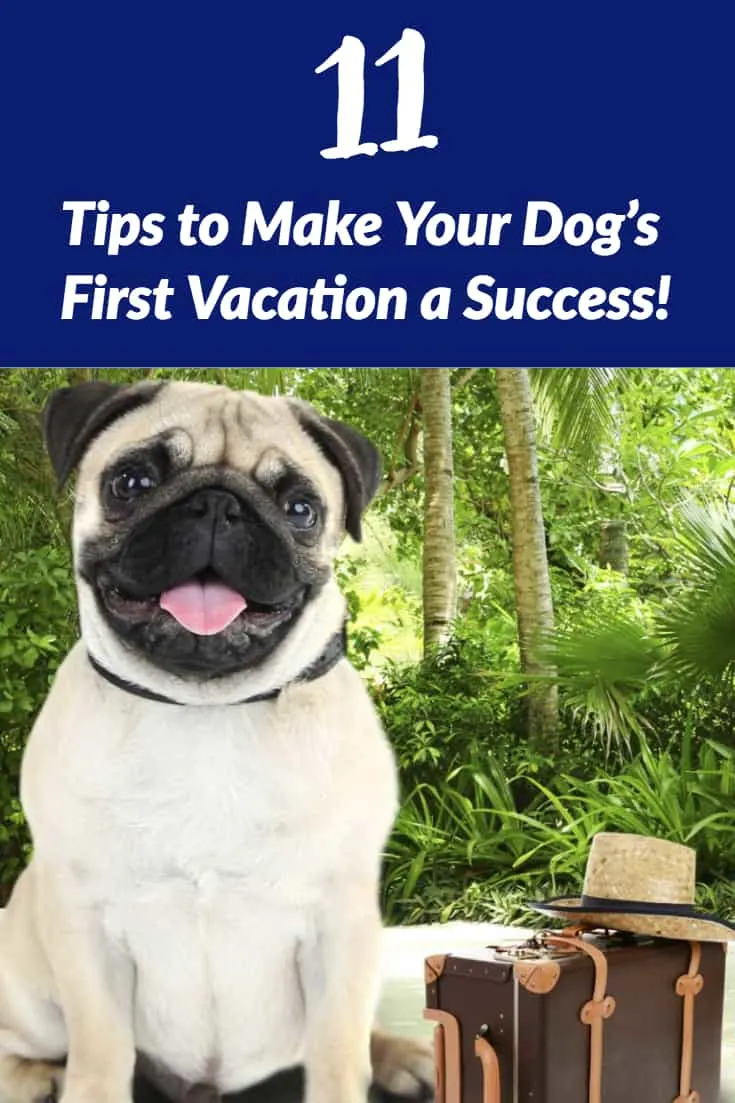If you're planning to board your dog but unsure about the process, this guide is here to help. Discover all the essential information you need to know about boarding your furry friend and ensure a stress-free experience for both of you.
Key Takeaways:
- Research and choose a reputable boarding facility that meets your dog's needs and offers a safe and comfortable environment.
- Prepare your dog for boarding by ensuring they are up to date on vaccinations, have proper identification, and are well-socialized with other dogs.
- Provide the boarding facility with detailed information about your dog's routine, dietary requirements, medical history, and any special needs or preferences.
- Keep communication open with the boarding facility during your dog's stay to address any concerns or changes in behavior promptly.
- Upon returning home, give your dog time to readjust and provide them with extra attention, exercise, and reassurance to help ease their transition back to normalcy.
What is dog boarding and why might someone need it?
Dog boarding is a service where you can leave your dog at a specialized facility while you are away. This can be helpful if you are going on vacation, have a busy work schedule, or need to attend an event where dogs are not allowed. Dog boarding facilities provide a safe and comfortable environment for your dog to stay in while you are gone.
There are several reasons why someone might need dog boarding. Firstly, if you are going on vacation, it may not be possible or convenient to bring your dog along. In this case, boarding your dog ensures that they are well taken care of while you enjoy your trip. Secondly, if you have a busy work schedule or other commitments that keep you away from home for long periods of time, boarding your dog can provide them with the attention and care they need during those times. Lastly, there may be certain events or situations where dogs are not allowed, such as weddings or family gatherings. Boarding your dog allows you to attend these events without worrying about their well-being.
The process of boarding a dog explained
The process of boarding a dog usually involves several steps. First, you will need to find a suitable boarding facility for your dog. It's important to research different facilities and choose one that meets your needs and provides a safe and comfortable environment for your pet.
Once you have chosen a facility, you will need to make a reservation for your dog's stay. Many facilities require advance booking, especially during peak times like holidays. It's important to plan ahead and secure a spot for your dog.
Prior to dropping off your dog at the facility, it's recommended to visit the facility beforehand with your pet. This allows both of you to familiarize yourselves with the surroundings and meet the staff. It also gives you an opportunity to ask any questions or address any concerns you may have.
When it's time to drop off your dog, make sure to bring all necessary paperwork, including vaccination records and emergency contact information. Provide the facility with specific instructions regarding your dog's feeding and exercise routines, as well as any medications they may need. This will help ensure that your dog receives the proper care during their stay.
Finding a good dog boarding facility: tips and tricks
When searching for a good dog boarding facility, there are several tips and tricks that can help you make the right choice:
1. Research different facilities:
- Look for facilities in your area and read reviews from other pet owners.
- Consider factors such as cleanliness, safety measures, and staff qualifications.
2. Visit the facility:
- Schedule a visit to the facility before making a reservation.
- Observe the environment and check if it is clean and well-maintained.
- Talk to the staff and ask about their experience and training in handling dogs.
3. Ask about services provided:
- Inquire about the services offered by the facility, such as grooming or playtime activities.
- Determine if these services align with your dog's needs and preferences.
4. Consider special requirements:
- If your dog has special needs or medical conditions, ensure that the facility can accommodate them.
- Ask if there is a veterinarian on-call or nearby in case of emergencies.
By following these tips and tricks, you can find a good dog boarding facility that will provide a safe and comfortable stay for your furry friend while you are away.
Packing essentials for your dog's boarding stay
When packing for your dog's boarding stay, it is important to include all the necessary essentials to ensure their comfort and well-being. Here are some items you should consider packing:
Food and treats:
Bring enough of your dog's regular food to last the duration of their stay. It is also a good idea to pack some treats that your dog enjoys as a special reward during their time at the boarding facility.
Medications and supplements:
If your dog requires any medications or supplements, make sure to provide clear instructions and pack enough for the entire stay. Include any necessary administration tools such as pill dispensers or syringes.
Comfort items:
To help your dog feel more at ease in a new environment, pack familiar items such as their favorite blanket or toy. These comforting objects can provide a sense of security during their boarding stay.
Important information to provide to the boarding facility about your dog
When entrusting your dog to a boarding facility, it is crucial to provide them with all the necessary information about your furry friend. Here are some key details you should share:
Veterinary contact information:
Provide the contact details of your regular veterinarian, including their name, phone number, and address. This will allow the boarding facility to quickly reach out in case of any emergencies or health concerns.
Allergies or dietary restrictions:
If your dog has any known allergies or specific dietary needs, be sure to inform the boarding facility staff. This will ensure that they can accommodate these requirements and prevent any potential health issues.
Behavioral quirks or preferences:
Inform the boarding facility about any behavioral quirks or preferences your dog may have. For example, if your dog is afraid of thunderstorms or dislikes being around other dogs, this information will help the staff provide appropriate care and make your dog's stay more comfortable.
Feeding and exercise routines for dogs at a boarding facility
When it comes to feeding and exercise routines for dogs at a boarding facility, consistency is key. Here are some tips to ensure your dog's needs are met:
Feeding schedule:
Provide clear instructions regarding your dog's feeding schedule, including the amount of food to be given at each meal. If your dog requires any specific feeding techniques or has dietary restrictions, communicate these details to the boarding facility staff.
Exercise requirements:
Inform the boarding facility about your dog's exercise needs. Whether they require daily walks, playtime, or specific activities, sharing this information will help the staff provide adequate exercise and mental stimulation for your furry friend.
Sleeping arrangements:
If your dog has specific preferences for sleeping arrangements, such as needing a certain type of bed or crate, let the boarding facility know. This will ensure that your dog feels comfortable and secure during their rest periods.
Accommodations for dogs at a boarding facility: what to expect
When you board your dog at a professional facility, you can expect certain accommodations to be provided for their comfort and well-being. Here are some common features you might find:
Dedicated sleeping areas:
The boarding facility will typically have designated sleeping areas where dogs can rest comfortably. These areas may include individual kennels or rooms with cozy bedding.
Outdoor play areas:
Many boarding facilities have outdoor play areas where dogs can stretch their legs and enjoy some fresh air. These spaces are often securely fenced to ensure the safety of all dogs.
Socialization opportunities:
Some boarding facilities offer socialization opportunities for dogs, such as supervised group play sessions. This allows dogs to interact with other friendly canines under the supervision of trained staff.
Tips for keeping your dog healthy and safe during their boarding stay
Ensuring the health and safety of your dog during their boarding stay is essential. Here are some tips to help you achieve this:
Provide up-to-date vaccinations:
Make sure your dog's vaccinations, including rabies, distemper, and kennel cough, are up to date before their boarding stay. This helps prevent the spread of diseases among dogs in close quarters.
Pack necessary medications:
If your dog requires any medications or preventive treatments, such as flea or tick control, pack them along with clear instructions for administration. This will help maintain your dog's health throughout their stay.
Inform about any recent health issues:
If your dog has experienced any recent health issues or concerns, inform the boarding facility staff. They can then provide appropriate care and monitor your dog closely during their stay.
Preparing your dog for their stay at a boarding facility: what to do
To ensure a smooth transition for your dog into a boarding facility, it is important to prepare them beforehand. Here are some steps you can take:
Familiarize them with the facility:
If possible, visit the boarding facility with your dog before their actual stay. This allows them to become familiar with the surroundings and meet the staff, reducing anxiety during their stay.
Practice short stays away from home:
Before their boarding stay, gradually increase the duration of time your dog spends away from home. This helps them adjust to being separated from you and prepares them for their time at the boarding facility.
Pack familiar items:
Include some familiar items in your dog's packing, such as their favorite toy or blanket. These objects provide a sense of comfort and familiarity in an unfamiliar environment.
| In Conclusion | |
| Boarding your dog can be a great option when you need to travel or have other commitments. | It is important to choose a reputable boarding facility that meets your dog's needs and provides a safe and comfortable environment. |
| Make sure to prepare your dog for boarding by ensuring they are up-to-date on vaccinations, bringing their favorite toys or bedding, and providing clear instructions to the staff. | By following these guidelines, you can ensure that your furry friend has a positive boarding experience and you can enjoy peace of mind while you're away. |

















